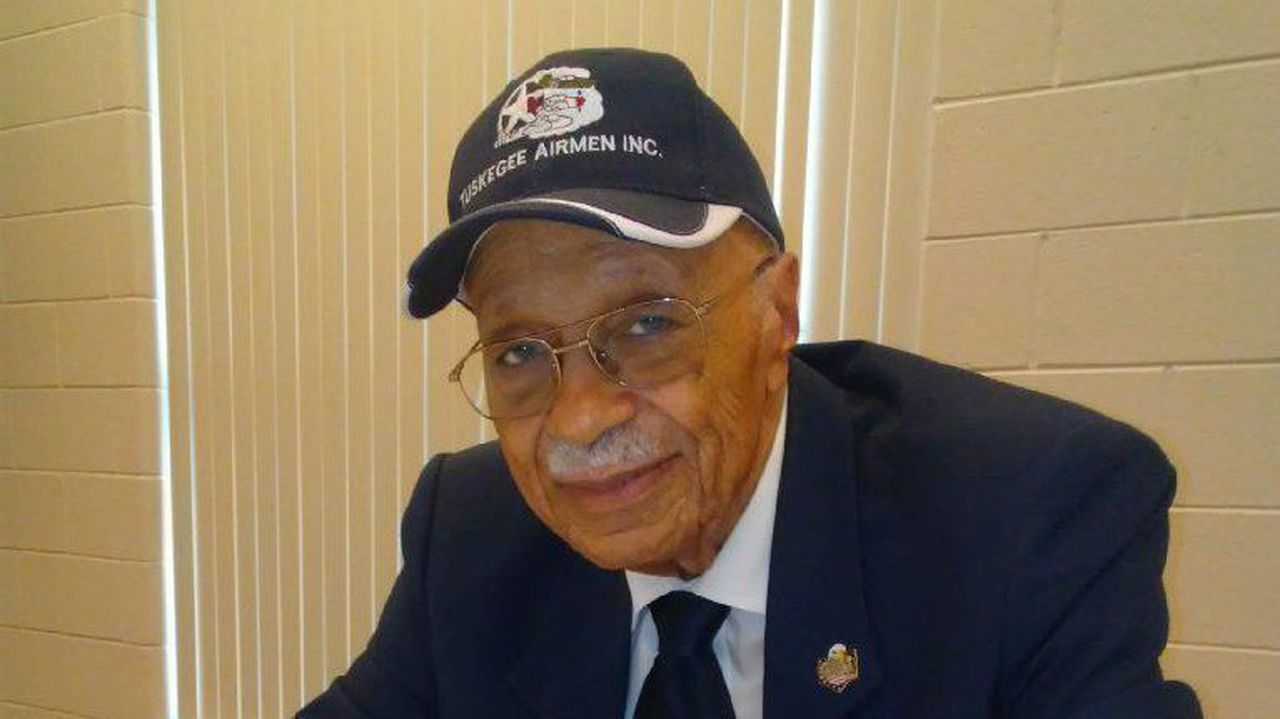Tuskegee Airman Oscar Lawton Wilkerson Jr. dies a day before 97th birthday
Oscar Lawton Wilkerson Jr., a member of the Tuskegee Airmen, the nation’s first Black aviation combat unit, died the day before his 97th birthday.
Wilkerson, who was born in Chicago Heights Feb. 9, 1926, died Feb. 8.
Illinois U.S. Sen. Dick Durbin tweeted that Wilkerson “helped pave the way for generations of young Black men” who wanted to become combat pilots.
“A humble and generous spirit, Mr. Wilkerson dedicated his life to inspiring youth in IL with tales of his time as one of the Tuskegee Airmen and he will be missed,” Durbin tweeted.
U.S. Rep. Robin Kelly tweeted about Wikerson’s legacy, as a child who dreamed of becoming a pilot to serving with the Tuskegee Airmen.
“Becoming a pilot with the Tuskegee Airmen, he paved the way for desegregation in the military. His passing is a sad loss for our country, but his legacy will live on,” Kelly tweeted.
Wilkerson volunteered for the Army Air Forces, he said in March 2017 during an event at Southland College Prep Charter High School in Richton Park to honor his service.
His application was accepted before graduating from Bloom Township High School in 1944. As he headed to Biloxi, Mississippi, for basic training, Wilkerson said he had to move to a Blacks-only car when the train crossed the Mason-Dixon Line.
Wilkerson’s aptitude test results led him to be trained as a pilot at Tuskegee Institute in Alabama. During this time, he underwent nine weeks of primary training to learn flight basics, he said in 2017.
Cadets were given only eight hours of training on basic maneuvers in a biplane with an instructor before they were expected to know how to fly, Wilkerson said.
“At the end of eight hours, they put you in the plane and said, ‘OK, fool, go kill yourself,’” he said. “(Failure) was hanging over your head all the time. All the way along, every step you made. If you messed up and got washed out, that was the end of it.”
If they passed, there were still 18 more weeks of training, where cadets would be separated into fighter and bomber pilots, Wilkerson said. Later in life, Wilkerson said he learned the only determining factor in what planes to fly was size: the smallest men flew the smallest planes and big guys like Wilkerson, who was 5 feet, 11 inches tall, were placed in bombers.
In an interview with History Markers, Wilkerson said he was involved in an accident during his training while landing a plane. During a touch-and-go training, where a pilot landed the plane and then took off again, Wilkerson said he was preparing to land but the plane in front of him was stopped on the runway.
In the interview, Wilkerson he was given the clear to land without knowing the other plane was on the runway. When he saw the other plane, Wilkerson said he tried to pull his plane up to avoid a crash, but his landing gear hit the other plane canopy and “both planes went over upside down.”
The other pilot head a minor head injury and Wilkerson was unharmed, he said.
The smallest failure could disqualify a pilot in training, he said, and there was a constant string of tests and challenges and even hazing.
“The carrot at the end of the stick were those silver pilot wings,” he said.
Wilkerson passed his flight test in 1946, earning his wings and a rank of second lieutenant. But, World War II had ended, so he was tasked with postwar cleanup efforts.
He finished out his service by flying B-52s to Kingman, Arizona, for storage or disassembly in the U.S. military’s aircraft “boneyard” and was a lifeguard at an officer’s pool. He was also in charge of the officer’s club at a base in Columbus, Ohio, he said.
After the Army Air Forces discharged Wilkerson, he said commercial airlines wouldn’t take his application because he was Black. By the time airlines accepted Black applicants, he was too old for the training, he said.
That’s why the local chapter of living Tuskegee Airmen was called the Dodo Chapter, Wilkerson said. The founders decided that if they didn’t preserve the legacy, they would die off like the dodo bird, which went extinct because it lost the ability to fly.
But he has flown since. Wilkerson owned a small single-engine Cessna for years until the upkeep became too expensive.
In 1962, Wilkerson got a break in radio as community relations director and weekend host at WBEE-AM station in Harvey. He later worked with WMAQ-AM. He retired in 1988.
©2023 Chicago Tribune. Visit chicagotribune.com. Distributed by Tribune Content Agency, LLC.
